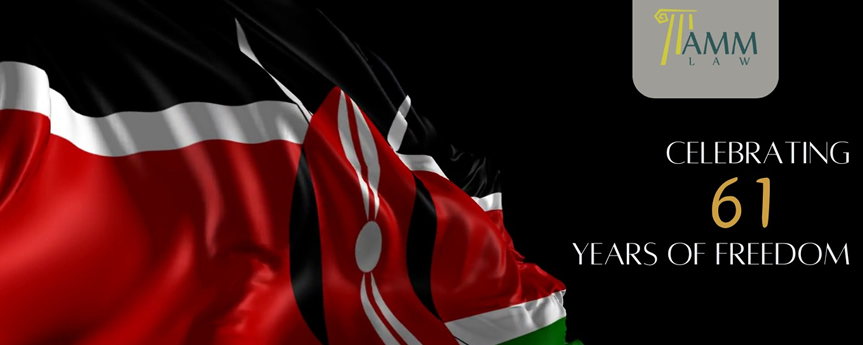
The Significance Of Today In Our Legal Industry
Madaraka Day, celebrated annually on June 1st, holds profound significance in Kenya’s history. It commemorates the day in 1963 when Kenya attained internal self-rule from British colonial governance, marking a critical step towards full independence. While this day is a cornerstone of national pride and celebration, its implications extend deeply into various sectors, particularly the legal industry. Understanding Madaraka Day’s importance offers insights into the evolution of Kenya’s legal framework and its ongoing development. Here’s out take.
Madaraka Day symbolizes the beginning of Kenya’s journey towards self-governance and the establishment of its legal sovereignty. Before 1963, Kenya’s legal system was heavily influenced by British colonial laws, which were often unsuited to the local context and largely disregarded indigenous legal traditions. The transition to self-rule allowed Kenyans to start shaping a legal system that reflected their unique social, cultural, and political realities.
One of the most significant impacts of Madaraka Day on our legal industry is the impetus it provided for the creation of a constitution tailored to Kenya’s needs. The initial constitution enacted in 1963 laid the groundwork for the country’s legal and governmental structures, emphasizing the principles of democracy, human rights, and the rule of law. Although this constitution was a modified version of the colonial framework, it was an essential first step towards a more autonomous and relevant legal system.
The significance of Madaraka Day is also evident in the progressive constitutional reforms that have occurred over the years. The 2010 Constitution, a landmark in Kenya’s legal history, epitomizes the spirit of Madaraka. It is a testament to the country’s commitment to refining its legal structures in line with democratic principles and local aspirations. This Constitution introduced major changes, including the devolution of government, enhanced protection of human rights, and significant judicial reforms aimed at enhancing the independence and efficiency of the judiciary.
Madaraka Day is also a reminder of the importance of continuing legal education and the adaptation of legal practices to meet evolving national and global standards. Kenyan lawyers and legal practitioners are tasked with not only understanding the historical context of their legal system but also contributing to its growth and responsiveness to contemporary challenges. This includes embracing new areas of law, such as technology and intellectual property, and ensuring that justice is accessible and equitable for all Kenyans.
Moreover, Madaraka Day underscores the role of the legal industry in Kenya in safeguarding the gains of self-governance and independence. Legal professionals play a crucial role in upholding the rule of law, protecting human rights, and ensuring that governmental powers are exercised within the bounds of the law. This day serves as an annual reflection on the progress made and the challenges that remain in achieving a just and fair legal system.
In conclusion, Madaraka Day is not only a celebration of Kenya’s path to self-rule but also a pivotal moment that set the stage for the development of an independent and dynamic legal industry. It highlights the importance of a legal system that is reflective of the country’s values and responsive to its needs. For legal professionals, Madaraka Day is a call to honor the legacy of self-governance by continuously striving for excellence, integrity, and justice in their practice. As Kenya commemorates this day, it reaffirms its commitment to a legal framework that supports its aspirations for democracy, equity, and sustainable development.

